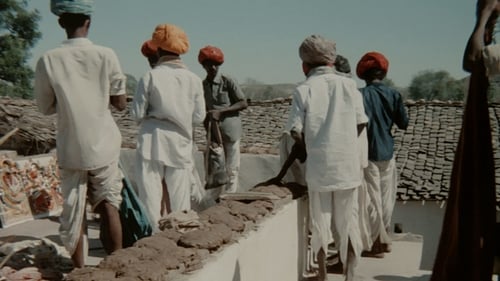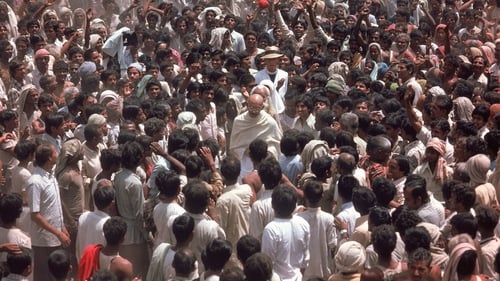
Director
At Kumbh Mela, the world’s largest congregation of religious pilgrims, a troupe of theatre actors stage a play based on an origin myth of Hinduism – the churning of the cosmic ocean. The legend tells of an epic battle between the gods and the demons for an elixir of immortality. The mela (or fair) is celebrated at the site where the elixir was believed to have fallen. Today, millions of Hindu pilgrims gather there to bathe in the holy river over a two-month period.

Director
An attempt to engage with the historical, mythical and the contemporary worlds of the city of Pushkar

Director
An observation of the political climate in India leading upto a highly anticipated election.

Director
Rangbhoomi follows Kamal Swaroop as he attempts to trace the contours of Dada Saheb Phalke's life in Varansasi after he withdrew, disillusioned, from the world of cinema and decided to take up theater. While in Varanasi, Phalke wrote a semi-autobiographical play titled "Rangbhoomi" which forms the core of this cinematic exploration.

Dialogue
An old man ventures into the virtual world.

An old man ventures into the virtual world.

Dialogue
An urban contemporary film about adultery, murder and betrayal in the film noir style. A simple story to which the director imparts a feeling of unrest and disquiet, catching the city in its various moods. The film breaks generic conventions, notably in the presentation of the private detective through his deglamourised life and his process of discovery of 'who did it'. It is not constructed through his point of view at all. In fact the policeman and the detective, the fact finders, are in the dark about the crime, to the very end.

Producer
Om Dar-Ba-Dar is a 1988 Indian postmodernist Hindi film directed by Kamal Swaroop and starring Anita Kanwar, Aditya Lakhia and Gopi Desai in lead roles. The film set in Ajmer and Pushkar in Rajasthan, employed nonlinear narrative and an absurdist storyline to satire mythology, arts, politics and philosophy.

Director
Om Dar-Ba-Dar is a 1988 Indian postmodernist Hindi film directed by Kamal Swaroop and starring Anita Kanwar, Aditya Lakhia and Gopi Desai in lead roles. The film set in Ajmer and Pushkar in Rajasthan, employed nonlinear narrative and an absurdist storyline to satire mythology, arts, politics and philosophy.

Writer
In a poetic hour and a half, director Mani Kaul looks at the ancient art of making pottery from a wide variety of perspectives.

Assistant Director
Después de defender los derechos de los ciudadanos africanos en Sudáfrica, Gandhi, considerando que también los hindúes son ciudadanos de segunda clase en su propia tierra, los incita a sublevarse contra el Imperio Británico mediante la doctrina de la no-violencia.

Director
A stylized version of Vijay Tendulkar’s radical Marathi play chronicling the Peshwa regime in western India, a collective effort of direction and cinematography made by an independent group of young filmmakers.

Director
Director Kamal Swaroop and a group of students from the Film and Television Institute of India explore the origins and the roots of the founding father of Indian Cinema.

Director
Atul Dodiya’s oeuvre spans the vastness of the history of art and an in depth understanding and exploration of themes in India’s freedom movement. The Film follows his paintings and work to construct a story of the artist’s life, to understand the impulses and elements behind his art and his responses to the world around him.

Director
Dada Saheb Phalke ( 1870 – 1944) the father of Indian film industry & his own eight children. The film traces his life & career through the reminiscence of his surviving children, family photographs and his films.











